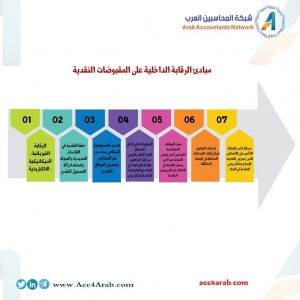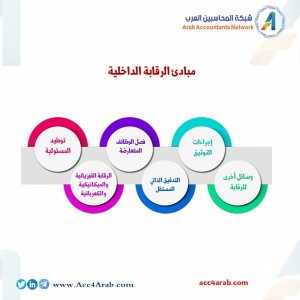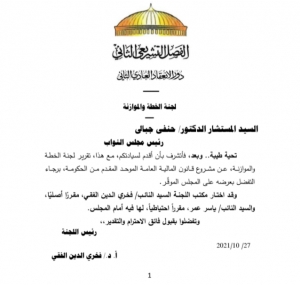عرض العناصر حسب علامة : الرقابة الداخلية
رسالة دكتوراه: أثر شفافية الإفصاح السياسي للشركات على مخاطر الدعاوي القضائية
رسالة ماجستير: تقييم فاعلية نظم الرقابة الداخلية في البنوك التجارية في الكويت
هدفت الدراسة إلى تقييم فاعلية نظم الرقابة الداخلية في البنوك التجارية في الكويت، بالإضافة إلى بيان دور الرقابة الداخلية في العمل المصرفي للبنوك التجارية الكويتية. وتشخيص أهم المشكلات والمعوقات التي تحول دون تحقيق رقابة داخلية فاعلة في البنوك التجارية الكويتية.
مبادئ الرقابة الداخلية على المقبوضات النقدية
تعتبر النقدية نقطة البداية في نظام التشغيل في المنشآت المختلفة بالإضافة الى ذلك فإنها تعتبر نقطة البداية في نظام الرقابة الداخلي
مبادئ الرقابة الداخلية
تتبع المنشأة مبادئ محددة في الرقابة من أجل المحافظة على الأصول وزيادة الدقة والموثوقية في السجلات المحاسبية
دراسة ماجستير: الدور المعدل للتدريب في العلاقة بين استخدام نظام إدارة معلومات مالية الحكومة GFMIS وفعالية الرقابة الداخلية في الوحدات الحكومية المصرية
يتمثل الهدف الرئيسى لهذه الدراسة في التعرف على الدور المعدل للتدريب في العلاقة بين استخدام نظام إدارة معلومات مالية الحکومة وفعالية الرقابة الداخلية في الوحدات الحکومية وذلک بالتطبيق على جامعة المنصورة کأحد الوحدات الحکومية العامة
معلومات إضافية
- البلد مصر
رسالة ماجستير: قياس فاعلية الدور الحوكمي للمراجعة الداخلية في الرقابة الداخلية بالمصارف السودانية
عمدت هذه الدراسة إلى تحليل ودراسة فاعلية الدور الحوکمي للمراجعة الداخلية في تعزيز فاعلية أداء الرقابة الداخلية بالمصارف السودانية
رسالة ماجستير: مدى تأثير معايير المحاسبة القائمة على القواعد مقابل المبادىء على العلاقة بين دوافع الإدارة وجودة التقرير المالي
معلومات إضافية
- البلد السعودية
رسالة ماجستير: مدى مساهمة تقنيات الذكاء الإصطناعي في دعم جودة الأداء المهني لمكاتب المحاسبة والمراجعة في مصر
يهدف البحث إلى تحديد واقع مدى إلتزام مكاتب المحاسبة والمراجعة العاملة في مصر يدعم جودة الأداء المهني من خلال إستخدام تقنيات الذكاء الإصطناعي في مكاتب المحاسبة والمراجعة ومدى مساهمته في تنمية قدرات مكاتب المحاسبة والمراجعة على تطبيق المعايير الدولية للمحاسبة والمراجعة وبالأخص معايير رقابة الجودة
معلومات إضافية
- البلد مصر
البرلمان المصري يبدأ مناقشة قانون المالية الموحد
رسالة ماجستير: التأکيد المشترک کأحد آليات الرقابة الداخلية ودور أصحاب المصلحة في المراجعة الداخلية في تفعيل تطبيقه (دراسة ميدانية)
في المحاسبين العرب، نتجاوز الأرقام لتقديم آخر الأخبار والتحليلات والمواد العلمية وفرص العمل للمحاسبين في الوطن العربي، وتعزيز مجتمع مستنير ومشارك في قطاع المحاسبة والمراجعة والضرائب.










